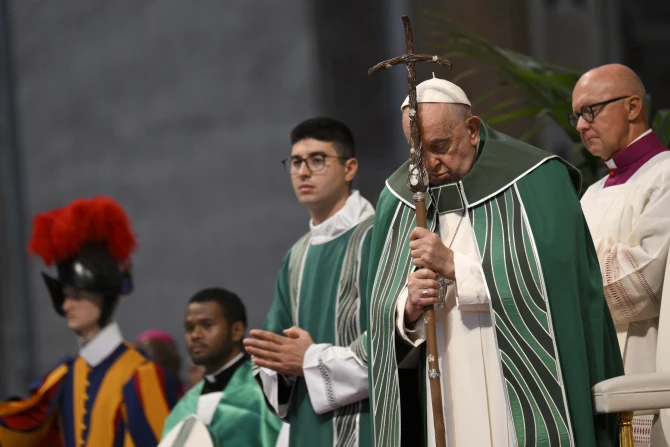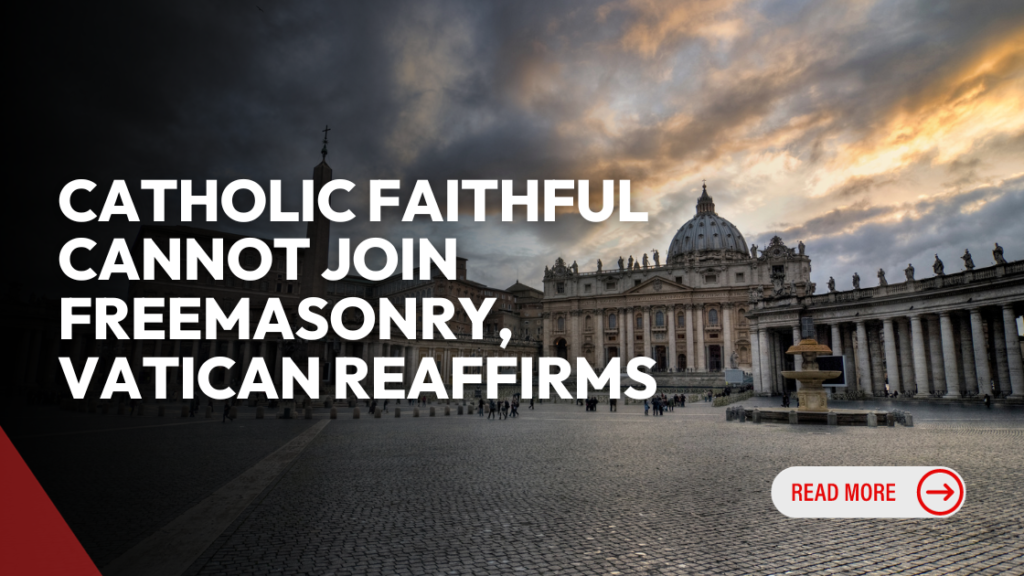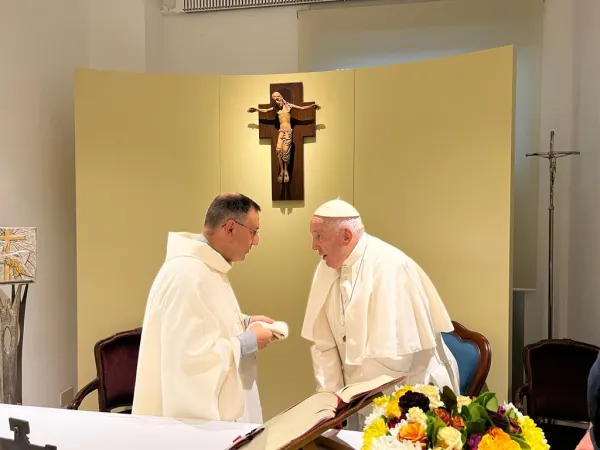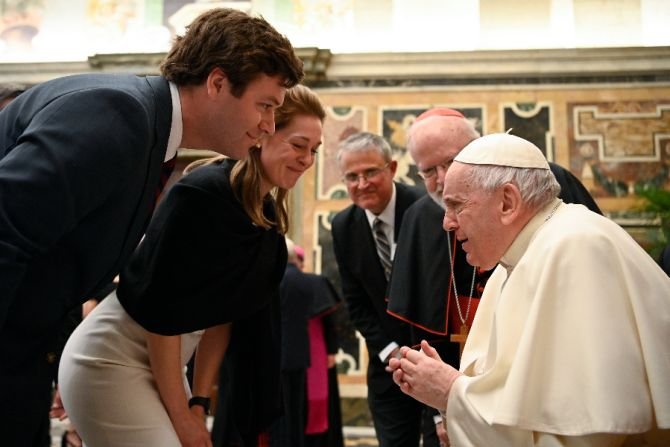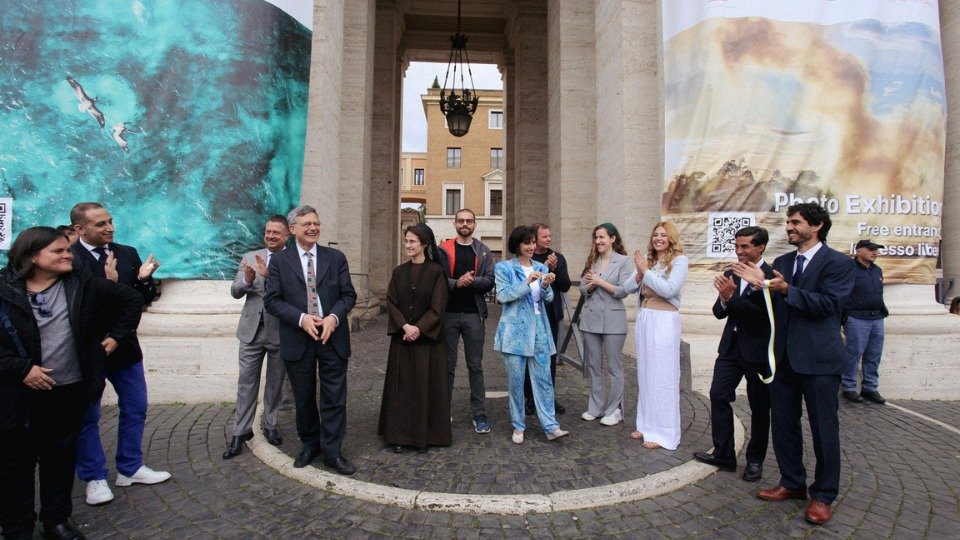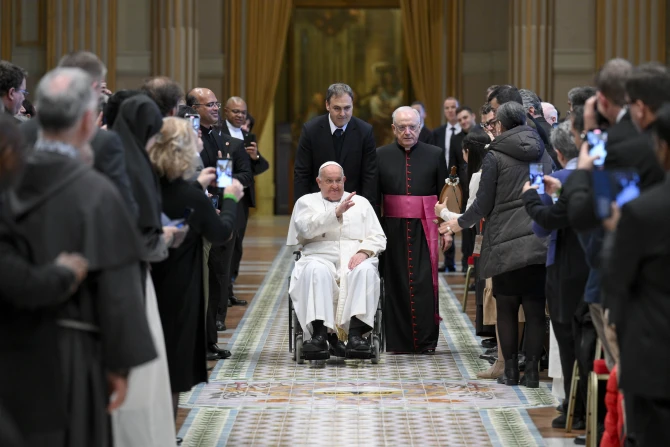The Vatican announced on Saturday its latest plans for the Synod on Synodality’s ongoing implementation — a multiyear “accompaniment and evaluation process” leading to a Church-wide assembly at the Vatican in October 2028.
We explain more about the process and why it has been initiated:
Implementation phase
Initiated by Pope Francis in October 2021, the Synod on Synodality was a multiyear, worldwide process of the Catholic Church focused on exploring the question “What steps does the Spirit invite us to take in order to grow in our ‘journeying together’?”
The synod went through diocesan, national, and continental stages in phase one, the “consultation” phase. Two global, monthlong assemblies were held at the Vatican in October 2023 and October 2024 as part of the next “discernment” phase.
The 2024 synod gathering, which included for the first time both bishops and non-bishops as voting members, was largely focused on discussing the question “What processes, structures, and institutions are needed in a missionary synodal Church?”
At the end of the month, Pope Francis chose to ratify the assembly’s final report rather than write his own postsynodal document, stating that “there are already very concrete indications in the document that can be a guide for the mission of the Churches, on the different continents, in the different contexts.”
The third and final phase of the Synod on Synodality is the implementation phase, underway now.
Study groups examining 10 areas of possible reform, based on suggestions from the 2023 assembly, are part of the implementation of the synod. Some of the study groups are expected to deliver their final reports in June.
Accompaniment and evaluation process
On March 15, the Vatican’s synod office announced an additional initiative of the implementation of the Synod on Synodality: an over-three-year accompaniment and evaluation process that will begin in churches and dioceses, move to national and international gatherings, and eventually culminate in a global gathering at the Vatican in October 2028.
With the approval of Pope Francis, who signed off on the process from the hospital on March 11, the General Secretariat of the Synod sent a letter to all of the Catholic Church’s Latin-rite bishops and Eastern-rite exarchs as well as to bishops’ conference presidents explaining this next project.
The timeline of the accompaniment and evaluation process is as follows: This May will see the publication of a support document for the implementation phase, with guidelines for its use.
From June 2025 to December 2026 there will be implementation paths in local Churches.
In the first half of 2027 there will be evaluation assemblies in dioceses around the world.
The second of half of 2027 will see evaluation assemblies in national and international bishops’ conferences.
Evaluation assemblies at the continental level will take place in the first half of 2028.
June 2028 will see publication of the Instrumentum Laboris, or guiding document, for the October 2028 assembly.
Finally, in October 2028, the Vatican will host the ecclesial assembly.
According to Cardinal Mario Grech, secretary-general of the synod and the author of the letter about the accompaniment and evaluation process, “synodal teams” made up of priests, deacons, consecrated men and women, and laypeople — accompanied by their bishops — will organize and conduct the process in each diocese.
What is it all about?
Grech said in his letter the implementation phase of the Synod on Synodality should be understood “not as merely the ‘application’ of directives from above but rather as a process of ‘reception’” of the suggestions made in the final document of the October 2024 synodal assembly.
“It is essential to move forward together as the whole Church,” the cardinal emphasized, noting the importance of “harmonizing” the synod’s reception throughout the Church.
Pope Francis, in his final speech to synod participants on Oct. 26, 2024, said: “There are and there will be decisions to be made.”
“I, then, will continue to listen to the bishops and the Churches entrusted to them,” he continued. “This is not the classic way of postponing decisions indefinitely. It is what corresponds to the synodal style with which even the Petrine ministry is to be exercised: listening, convening, discerning, deciding, and evaluating.”
“The process,” Grech explained, “will also be an opportunity to evaluate together the choices made at the local level and recognize the progress made in terms of synodality. Thanks to this process, the Holy Father will be able to listen to and confirm the orientations deemed valid for the whole Church.”
In an interview with Vatican News, Grech provided more background to the decision to implement an “application and evaluation process” in the Church.
He said it boils down to the need to have a synodal mentality and “simply publishing a ‘document’ is not enough for what emerged in the two phases of the synodal process to be implemented in the Church’s life.”
Because Pope Francis adopted the final document of the 2024 assembly into his ordinary magisterium, the whole Church is “required” to live the third phase, the implementation, of the synod, he continued.
This new process and its steps “constitute a map for the conversion and renewal of the Church in a synodal sense,” Grech said. “All the work that awaits us in these next three years is inspired by the contents of this document, which must be experimented with, in order to verify the possibility of realizing them in the life of the Church.”
This article was originally published on Catholic News Agency.

